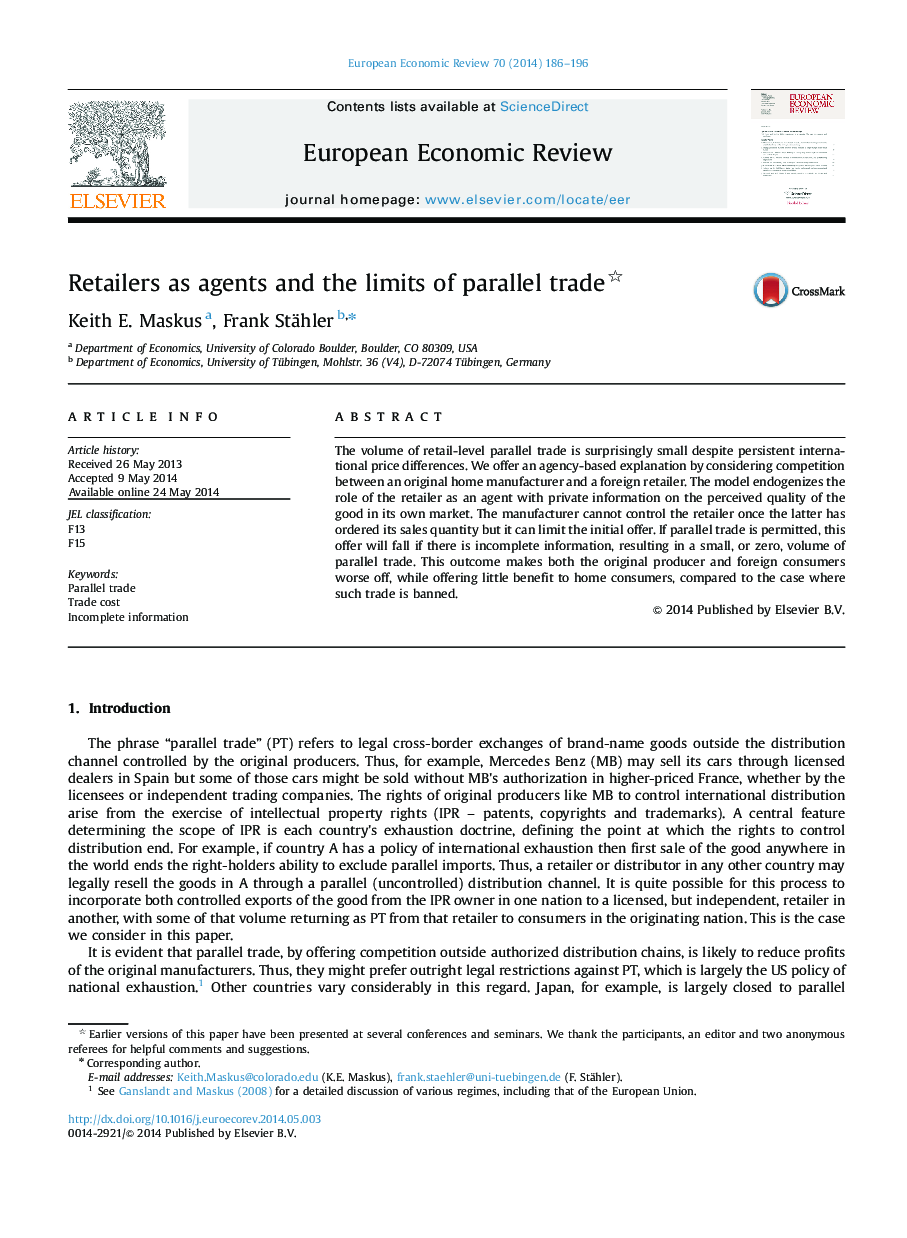| Article ID | Journal | Published Year | Pages | File Type |
|---|---|---|---|---|
| 5066713 | European Economic Review | 2014 | 11 Pages |
Abstract
The volume of retail-level parallel trade is surprisingly small despite persistent international price differences. We offer an agency-based explanation by considering competition between an original home manufacturer and a foreign retailer. The model endogenizes the role of the retailer as an agent with private information on the perceived quality of the good in its own market. The manufacturer cannot control the retailer once the latter has ordered its sales quantity but it can limit the initial offer. If parallel trade is permitted, this offer will fall if there is incomplete information, resulting in a small, or zero, volume of parallel trade. This outcome makes both the original producer and foreign consumers worse off, while offering little benefit to home consumers, compared to the case where such trade is banned.
Related Topics
Social Sciences and Humanities
Economics, Econometrics and Finance
Economics and Econometrics
Authors
Keith E. Maskus, Frank Stähler,
